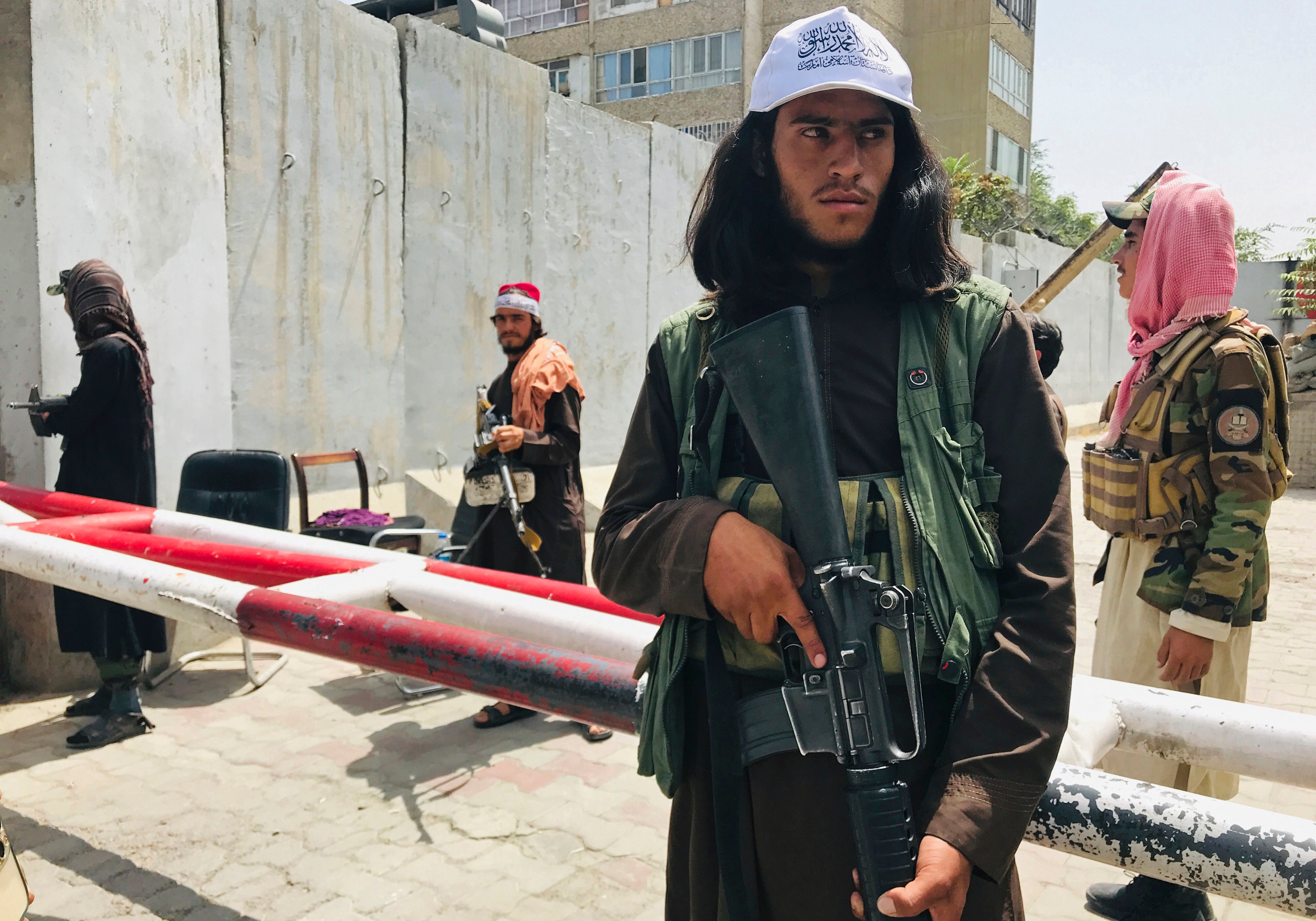NATO chief: Afghan leaders responsible for military collapse
NATO Secretary-General Jens Stoltenberg is blaming a failure of Afghan leadership for the swift collapse of the country’s armed forces but says the alliance must also uncover flaws in its military training effort

Your support helps us to tell the story
From reproductive rights to climate change to Big Tech, The Independent is on the ground when the story is developing. Whether it's investigating the financials of Elon Musk's pro-Trump PAC or producing our latest documentary, 'The A Word', which shines a light on the American women fighting for reproductive rights, we know how important it is to parse out the facts from the messaging.
At such a critical moment in US history, we need reporters on the ground. Your donation allows us to keep sending journalists to speak to both sides of the story.
The Independent is trusted by Americans across the entire political spectrum. And unlike many other quality news outlets, we choose not to lock Americans out of our reporting and analysis with paywalls. We believe quality journalism should be available to everyone, paid for by those who can afford it.
Your support makes all the difference.NATO Secretary-General Jens Stoltenberg on Tuesday blamed a failure of Afghan leadership for the swift collapse of the country’s Western-backed armed forces, but he conceded that the alliance must also address flaws in its military training program.
NATO has been leading international security efforts in Afghanistan since 2003 but wound up combat operations in 2014 to focus on training Afghanistan's national security forces. NATO helped build up an army some 300,000 troops, but that force withered in the face of the Taliban offensive in just days.
“What we have seen in the last few weeks was a military and political collapse at a speed which had not been anticipated,” Stoltenberg told reporters after chairing a meeting of NATO ambassadors.
He said parts of the Afghan army “fought bravely,” but that “ultimately, the Afghan political leadership failed to stand up to the Taliban and to achieve the peaceful solution that Afghans desperately wanted.”
“This failure of Afghan leadership led to the tragedy we are witnessing today,” said Stoltenberg, who over the years often insisted that the Taliban would only succeed at the negotiating table and never clinch victory on the battlefield.
A year ago, NATO’s “Resolute Support Mission” to train Afghan security forces involved around 10,000 personnel from 36 member and partner countries. On Sunday, a NATO official said “there are no troops under NATO command in Afghanistan currently.”
Despite the flaws exposed in Afghanistan by corruption and a lack of leadership, the 30-country military alliance believes that training local security forces is the best way to combat extremists like the Islamic State group and to avoid putting Western troops in harm’s way.
NATO is currently training troops and helping to build national security institutions in Iraq, Jordan and Tunisia and has similar arrangements with Georgia and Moldova. It’s also agreed to provide security advice to conflict-torn Libya “when conditions permit.”
“We need to continue to fight international terrorism,” Stoltenberg said, and he insisted that NATO’s efforts had helped to weaken the Al Qaeda network. He said that NATO can avoid getting mired in combat operations if it successfully trains local forces.
But, he conceded, “the big question we have to ask in an honest and clear-eyed way is: why didn’t the forces we trained and equipped and supported over so many years, why were they not able to stand up against the Taliban in a stronger and better way than they did?”
Stoltenberg said NATO’s short-term aim in “extremely serious and unpredictable” circumstances is to ensure that personnel from member and partner countries can get out safely, as well as those Afghans who helped them.
He said about 800 civilian personnel from NATO countries have remained behind in Afghanistan to help, notably in keeping the Kabul airport running, including staff to run air traffic control, aircraft fueling operations and communications.
Stoltenberg also urged the Taliban to respect the wishes of those who want to leave and not to close border crossing points or airports. He appealed to the militants to avoid “revenge or retribution” and ensure a peaceful transfer of power.
__